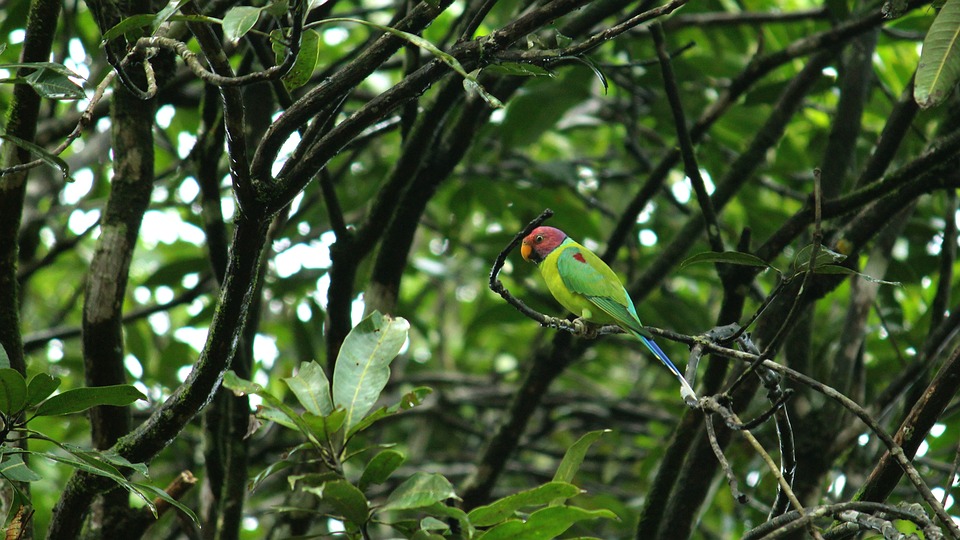Parrots are highly intelligent and social birds known for their affectionate nature and strong bonds with their human companions. However, sometimes parrots can develop excessive jealousy or possessiveness towards a specific person, which can lead to behavioral issues. In this article, we will explore the causes of this behavior and provide effective strategies to discourage it, ensuring a healthy and harmonious relationship between your parrot and other members of your household.
Understanding Excessive Jealousy and Possessiveness in Parrots
1. The Nature of Parrot Jealousy:
Excessive jealousy in parrots refers to a heightened sense of possessiveness and insecurity towards a particular person. Jealous parrots may exhibit behaviors such as screaming, biting, feather plucking, or clinging excessively to their favored person. These actions are driven by a fear of losing their bond with that person.
2. The Impact of Possessiveness:
Possessiveness in parrots can negatively affect their overall well-being. It can lead to stress, aggression, and even self-destructive behaviors. Additionally, possessive parrots may become territorial and exhibit aggressive behavior towards other members of the household, potentially causing harm or strain in relationships.
Causes of Excessive Jealousy and Possessiveness in Parrots
1. Lack of Socialization:
Parrots that haven’t been properly socialized with different people and experiences may develop jealousy and possessiveness towards their primary caregiver. Early socialization is crucial in helping parrots develop a well-rounded and adaptable personality.
2. Inadequate Stimulation:
Parrots require mental and physical stimulation to thrive. Lack of adequate stimulation can contribute to jealousy and possessiveness as the parrot becomes overly reliant on their favored person for entertainment and interaction.
3. Past Traumatic Experiences:
Parrots that have experienced past traumas, such as abuse or neglect, may develop excessive jealousy and possessiveness. These behaviors are often a result of fear and insecurity stemming from their previous experiences.
Effective Strategies to Discourage Jealousy and Possessiveness
1. Balanced Attention and Affection:
Maintain a balanced relationship with your parrot by distributing attention and affection equally among family members. Set boundaries and encourage independence in your parrot, allowing them to interact positively with different individuals.
2. Positive Reinforcement Training:
Implement positive reinforcement training techniques to discourage possessiveness and jealousy. Reward your parrot for displaying calm and non-possessive behaviors, redirecting their focus away from their favored person.
3. Environmental Modifications:
Create an enriched and stimulating environment for your parrot, providing toys, perches, and foraging activities to distract them from possessive behaviors. Reducing territorial behavior can be achieved by ensuring enough space for each family member to interact with the parrot.
FAQs (Frequently Asked Questions)
1. Can jealousy and possessiveness be common in all parrot species?
Jealousy and possessiveness can be observed in various parrot species, but the extent may vary. Some species are more prone to developing these behaviors, while others may exhibit them less frequently.
2. How long does it take to see improvements after implementing these strategies?
The timeline for improvement varies depending on the individual parrot and the consistency of the strategies implemented. It may take several weeks or even months to see significant changes in behavior.
3. Is it possible to completely eliminate jealousy and possessiveness in parrots?
While complete elimination of jealousy and possessiveness may not be possible in all cases, with consistent training and environmental modifications, these behaviors can be significantly reduced and managed effectively.
4. What should I do if my parrot becomes aggressive towards the person they are jealous of?
If your parrot displays aggressive behavior towards a specific person, it is important to prioritize safety. Consult a professional behaviorist or avian veterinarian for guidance on managing aggression and developing a behavior modification plan.
5. Can professional training or behaviorist consultations be helpful in these cases?
Yes, professional training or behaviorist consultations can be highly beneficial in addressing excessive jealousy and possessiveness in parrots. They can provide personalized guidance and support tailored to your parrot’s specific needs.
Conclusion
By understanding the underlying causes of excessive jealousy and possessiveness in parrots, implementing effective strategies, and providing a stimulating and well-balanced environment, you can help your parrot overcome these behavioral issues. Remember, patience, consistency, and positive reinforcement are key factors in promoting a healthy and harmonious relationship with your beloved feathered friend.









